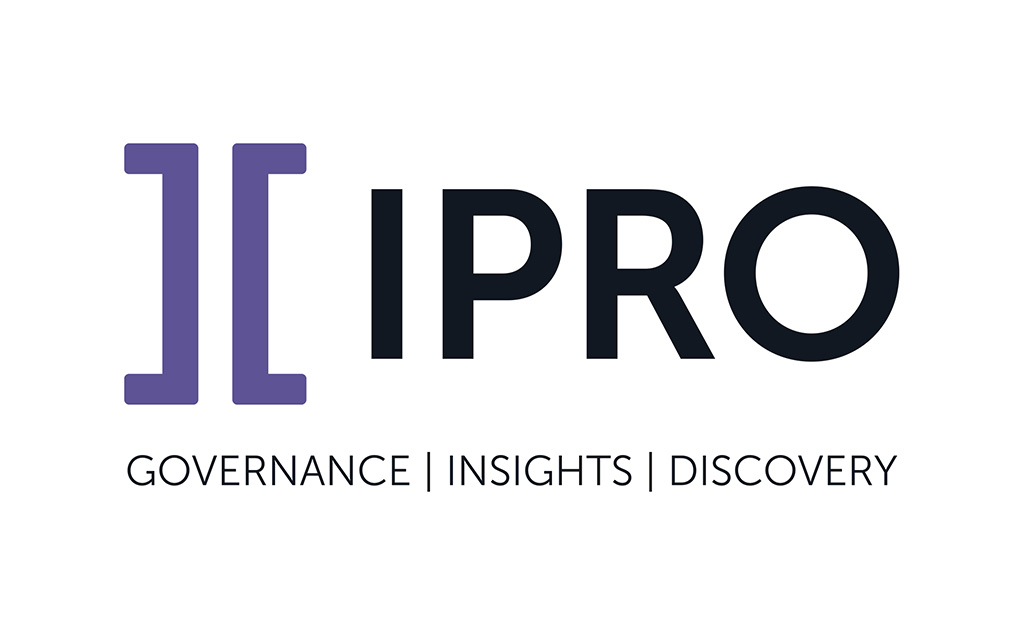
The following blog was curated with information from the AI panel at the IPRO Tech Show 2019. The conference is held by IPRO Tech, a Phoenix-based legal thought-leader and innovator in the eDiscovery industry—simplifying the process from discovery to trial while significantly reducing the cost and complexity of eDiscovery through user-friendly software, services, and support.
Written by Lara Piu
“The AI era is here. Sound futuristic? More like fundamental,” says eDiscovery & Information Governance Counsel William Kellerman at Hanson Bridgett LLP.
“It’s basically taking something that takes a lot of human effort and using a computer to make it easy, make it routine,” he stated in his recent IPRO Tech Show talk, where he and other top legal experts informed leaders about the future of the industry.
Yet, less than a third of people working at law firms use AI or machine learning according to a new Bloomberg Law Legal Operations & Technology survey.
Ease of use, budget, billable hours, and compliance are some of the reasons they’ve not jumped on the AI bandwagon. But now that the rest of the world is in-deep with AI, ironically, low-tech firms are experiencing new problems—here are just nine of them:
1. Civil procedure compliance
Justice is served with the right combination of data and expertise.
“8% of lawyers, doctors, lawyers, doctors, and other professionals, are correct 8% of the time; machines on their own are correct around 50% of the time; but an expert using machine learning is correct 95% of the time,” reports Kellermann, who advocated that justice is served with the right combination of data and expertise at the Show.
2. Above the line write-offs
AI electronic billing that reviews outside counsel bills can create above the line write-offs.
For example, data provided by the law firm is loaded into the system, the AI tool bubbles up certain items to the top, and anything that’s above the line is not paid for, or paid at a lesser amount, according to Kellerman.
3. Alternative fee agreements
The technology lawyer and litigator also reports that companies use AI to create alternative fee engagement agreements.
“So … you’re going to do all of this patent work for this price for the year, and that’s all you get. It’s no longer hourly billing,” Kellerman adds.
4. Pre-bills
The same pre-bill technology firms use to analyze associate and partner contributions is now being used against you in the vendor space.
“Anybody who’s providing legal services, regardless of how you’re doing it, how you bill and what you bill for, is going to be scrutinized by these kinds of tools,” Kellerman advises.
5. Inefficient legal specs
Monthly legal invoice review, analysis, and payments is a tedious job that firms that continue to have human resources to tackle, but now more than ever, legal firms must be efficient.
Corporate clients demand value and production.
Squire Patton Boggs Director of Practice Support, Stephen Goldstein says, “That movement is causing corporations to be much more aware about how they spend their legal dollars.”
6. Class action certifications
AI’s ability to quantify whether the burden or the damages for class members and their circumstances are substantially similar, it can help—or hinder—class certification.
“These technology uses coming are coming to the legal space and creating a great opportunity,” Kellerman notes, but naturally, the key is to be on the winning side of that equation.
7. Zero-trust differential privacy
Next-level corporate security represent life and death matters as well as organizational risk, which is how we arrived at the new zero-trust environment.
And this makes AI and machine learning crucial. Kellerman says, “Those are the kinds of things we’re going to need to see in our law firms, in our businesses, and the corporations who are going to drive that, to secure these conversations, to ensure privacy, and to do the work we need to do to inform the experts.”
8. Information overload
Between text, email, and the app of the day, the sheer volume of data that has to be sifted through today is at an all-time high and growing exponentially.
“You’re putting a lot of that information in a system that is being preserved. So the volume of data that is being generated today is at an unprecedented level,” explains Precision Discovery CEO, Kinny Chan.
9. Rogue stickies
Goldstein, who has been working with predictive coding for at least a decade, recalls how stickies fell off manually tagged documents in the old days. But with electronic discovery and predictive coding, more information is found rather than lost, he explains.
“It’s able to concentrate on what’s not relevant and just move it out of the way so we concentrate on what we need to concentrate on,” Goldstein says, noting some firms have resisted the technology with concerns to loss in billable hours. “But the good news for everyone in the room here is, this is not going to replace our jobs, this makes us all more valuable.”
“Anybody who’s providing legal services, regardless of how you’re doing it, how you bill and what you bill for is going to be scrutinized by these kinds of tools.”
— William Kellerman, eDiscovery & Information Governance Counsel, Hanson Bridgett LLP
Want to learn more on how to help your bottom-line?
Register to attend the IPRO Tech Show 2020
Getting up to speed on AI is just one of the many ways successful legal firm partners build their future-proof vision at IPRO Tech Show 2020. Held March 11-12, 2020 in Phoenix, Arizona, the show inspires informed legal and compliance innovation for litigation professionals, executives, attorneys, paralegals, IT professionals, law firms, corporations, government agencies, and legal experts each year.
“I found my first IPRO Innovations conference to be a high-energy, thought provoking event that I felt privileged to attend,” says leading legal industry analyst and Ari Kaplan Advisors Principal, Ari Kaplan.


